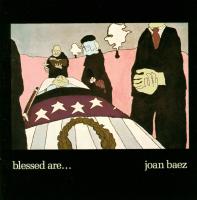It’s one thing to deny what now seems obvious. But to attack the journalists who exposed the truth about your ethnic identity as neo-colonialists and racist and sexist is beyond the pale. And given what Sainte-Marie has said previously about her ancestry, she cannot now claim, with sincerity, that she just “didn’t know”. She actively lied, and made up new lies to misdirect people from the old lies. Now she says, well, “I know who I am”, which is a nice way of refusing to take responsibility.
I have a mental hobby of pretending I’m the PR guy for whoever is embroiled in the latest scandal and have to come up with the best solution. In this case, I think she would have been better served with a line of “I admired indigenous culture so much that I wanted to be part of it, and I went too far, and did lie, and I am very sorry. And yes, it was terribly unfair to those of legitimate indigenous ancestry and if I haven’t already done enough to make up for it, I now wish to try.”
Instead, the stubborn denials and self-pity and claims of victimization leave a bad taste in the mouth.
She also claims to have been black-listed by the U.S. government, presidents Johnson and Nixon, and the FBI. I can’t find any evidence of this other than her own assertion:
The former FBI director blacklisted Sainte-Marie as her protest songs gained more and more popularity. She didn’t know that it had happened for about 20 years until a deejay “told me that he had letters on White House stationery commending him for having suppressed my music.” Toronto Star
What deejay? From who in the White House? Did she try to obtain the related documents through a Freedom of Information request?
It’s all beginning to sound a little pathetic. And if it wasn’t pathetic enough, she now tosses out claims that she was sexually abused by her brother and someone else she won’t identify. The brother is deceased– of course (like Joan Baez’ father)– but his daughter (Sainte-Marie’s niece) revealed letters that strongly suggest that Buffy Sainte-Marie threatened to publicly claim he sexually abused her to deter him from continuing to publicly challenge her claims of being born to an indigenous tribe in Saskatchewan when (as is now overwhelmingly clear) she was actually born to a white Christian family in Massachusetts. He backed off.
She should want to be remembered instead for these lines:
Now that your big eyes are finally open
Now that you’re wondering, how must they feel?
Meaning them that you chased ‘cross America’s movie screens.
They are very good. It’s a powerful song. We can have both. We can acknowledge her accomplishments and the weaknesses of character and dishonesty and leave it at that.


